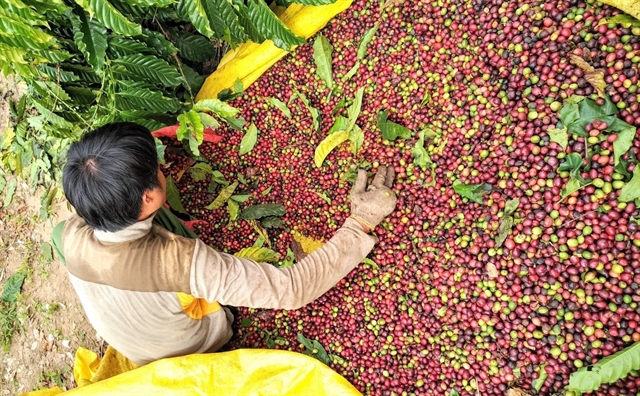Việt Nam and Russia are positioned to take advantage of growing opportunities for economic and trade cooperation, as highlighted by the Việt Nam Trade Office in Russia.

HÀ NỘI — Việt Nam and Russia are positioned to take advantage of growing opportunities for economic and trade cooperation, as highlighted by the Việt Nam Trade Office in Russia.
While trade turnover between the two countries showed strong growth in 2024, it remains well below the record high of US$5.5 billion in 2021, accounting for a modest 0.6 per cent of Việt Nam’s foreign trade and about 0.8 per cent of Russia’s.
Việt Nam and Russia are two economies that complement each other. Việt Nam imports a variety of Russian goods, including coal, metals, fertilisers, petroleum, liquefied gas, machinery, food, seafood and wood.
In turn, Russia imports a diverse range of products from Việt Nam, such as tropical agricultural goods, seafood, beverages, textiles, footwear, electronics, machinery and consumer goods.
Russia's large and competitive market presents a gateway, not only to Russian consumers, but also to the broader markets of the Commonwealth of Independent States (CIS) and the Eurasian Economic Union (EAEU).
To grow their market share in Russia, Vietnamese businesses need to have a systematic and strategic approach to brand development, along with a clear plan for market entry and expansion.
A significant advantage for Vietnamese enterprises is the Free Trade Agreement (FTA) between Việt Nam and the EAEU, which includes Russia. Signed in 2015 and effective since October 2016, this agreement has made a wide range of goods eligible for zero import tariffs, or very low tax rates.
Vietnamese enterprises should take full advantage of these favourable conditions to boost bilateral trade and investment opportunities.
The Việt Nam Trade Office in Russia also emphasises the importance of participating in trade fairs and exhibitions. These events serve as key platforms for businesses to learn about the Russian market and find potential customers.
Vietnamese businesses should make it a priority to attend or exhibit at major specialised trade fairs in Russia, particularly those focused on garments, wooden furniture, consumer goods, food, beverages, coffee, tea and mechanical engineering.
Localities, associations and businesses are encouraged to organise trade promotion delegations to attend these events.
At a recent meeting with Gennady Bezdetko, Ambassador of the Russian Federation to Việt Nam, Minister of Industry and Trade Nguyễn Hồng Diên urged for more favourable conditions for Vietnamese businesses to access Russia.
To establish a stable and sustainable export activities in Russia, Vietnamese enterprises must prioritise compliance with local regulations regarding product quality, packaging, labelling and registration.
It is essential to register trademarks and protect brands in Russia to safeguard them and avoid legal risks during business operations in the market.
For large enterprises with export products that have competitive advantages, such as coffee, fruit, tea, pepper, the Trade Office believes they should consider taking advantage of the incentives provided by the free trade agreement with the Eurasian Economic Union, as well as Russia's investment incentives, to invest in processing and trading in Russia.
This could include establishing local production or distribution channels to increase their competitiveness in Russia.
Enterprises should establish representative offices or set up companies in Russia, or send staff to work there in order to stay updated on the market situation, trends and the shopping and consumption habits of the local customers. This will provide for them a deeper understanding of the local market and support the development of their business in Russia.
Meanwhile, some challenges, such as transportation, payments and travel restrictions, are being resolved. Goods exported from Việt Nam to Russia can be shipped by the direct sea route from Vladivostok to Hải Phòng or HCM City, within 8-11 days. Alternatively, the export goods transported on the international railway route via China and Kazakhstan to Moscow takes around 35-40 days.
In terms of payment, Vietnamese and Russian businesses have the convenience of transacting in rubles and Vietnamese đồng, which simplifies the payment process.
Additionally, the Russian Federation’s introduction of electronic visas allowing Vietnamese citizens to stay for up to 15 days, makes travel for trade purposes much more accessible.
According to the General Department of Customs, in the first two months of 2025, bilateral trade turnover between Việt Nam and the Russian Federation reached $737.4 million, a 2 per cent decrease compared to the same period in 2024, including export value of $346.7 million and import value of $390.7 million.
Việt Nam's trade deficit with Russia was about $44 million. However, the export value of some agricultural products, including cashew nuts, pepper and coffee, remained resilient due to rising global prices. — VNS





